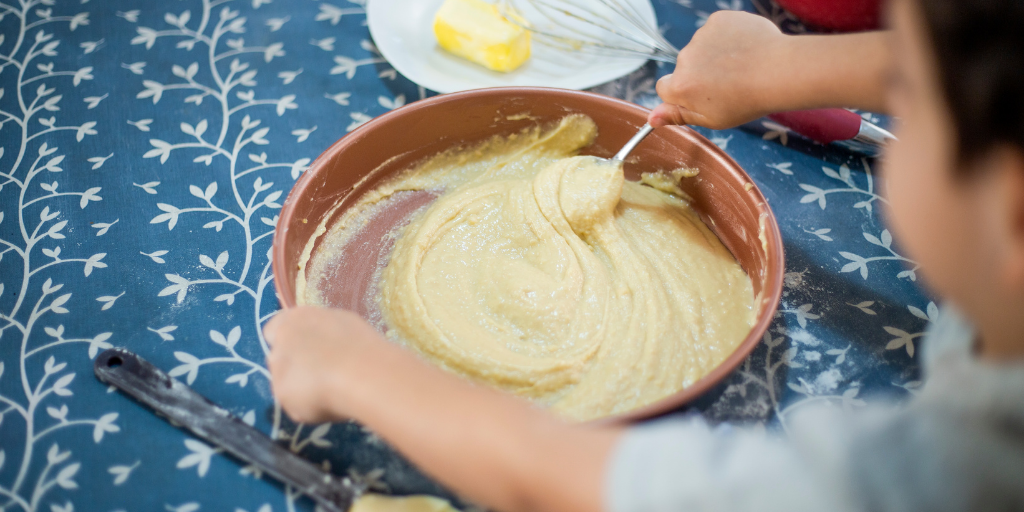Your local Early Learning Centre shares the benefits of letting your child help out in the kitchen.
Cooking is a great way to get your children involved with what they eat, and it gives you the opportunity to teach them some healthy eating habits. Here are some advantages of letting your child help out in the kitchen and some tips to get them involved.
Teaches your child healthy habits
Teaching and reinforcing a healthy lifestyle with nutritious meals is a lesson that will stick with your child until adulthood. It also gives your child a chance to make and taste these healthy meals, and children who are picky eaters are more likely to eat what they have made.
Gives you the chance for family bonding time
instead of shooing your child out of the kitchen, take this opportunity to turn it into a family bonding moment. This gives you a chance to work as a team to make a tasty meal! It also makes your child feel more important in the home when you give them the responsibility of preparing a meal which reinforces their sense of belonging.
Gets them school ready
Recipes require a level of mathematical skill. Following recipes can teach your child how to count, measure, and fractions. And while expanding your child’s vocabulary, cooking can also familiarise your child with science concepts like chemical reactions, and heating and cooling.
Helps them develop their fine motor skills
Giving your child simple tasks like mixing, decorating or sifting, or more complex tasks like cutting, peeling or cracking eggs, will give your child a chance to practice their fine motor skills and apply them in a real-world situation. Below are some age-appropriate tasks to give your child in the kitchen.
How to get your child involved
There are many age-appropriate activities that you can give your child in the kitchen. But remember that every activity must be supervised. If you’re not comfortable with your child handling food yet, give them tasks like fetching utensils or ingredients.
Children 0-18 months
Children this age obviously can’t do much to help you, but you can still involve them by letting them observe. Set your child up somewhere safe and give them a few unbreakable cooking tools like wooden spoons and metal mixing bowls to bang around. Explain what you’re doing to them and let them smell and touch the ingredients.
Children 18 months–3 years
Around 18 months or even closer to two years in most cases, children are ready to help out in the kitchen. Give them simple tasks like:
- Mixing
- Pouring
- Rinsing fruits and vegetables
- Picking herbs off stems
- Decorating
- Packing lunches/snacks
Children 3-5 years
Children three to five years are able to do slightly more difficult tasks because they have more practised fine motor skills. Give them tasks like:
- Cutting soft foods with a plastic knife
- Rolling out dough
- Juicing lemons, limes or oranges
- Cracking an egg
- Measuring/levelling dry ingredients
- Cleaning the countertop
- Setting the table
YOU MIGHT ALSO LIKE TO READ:
What Your Child Should Be Eating for Their Age
A healthy diet is more than the food a child consumes; it is also about staying active. However, the two go hand in hand. Your child should be eating the right foods that balance the energy they use doing physical activities. – READ MORE






